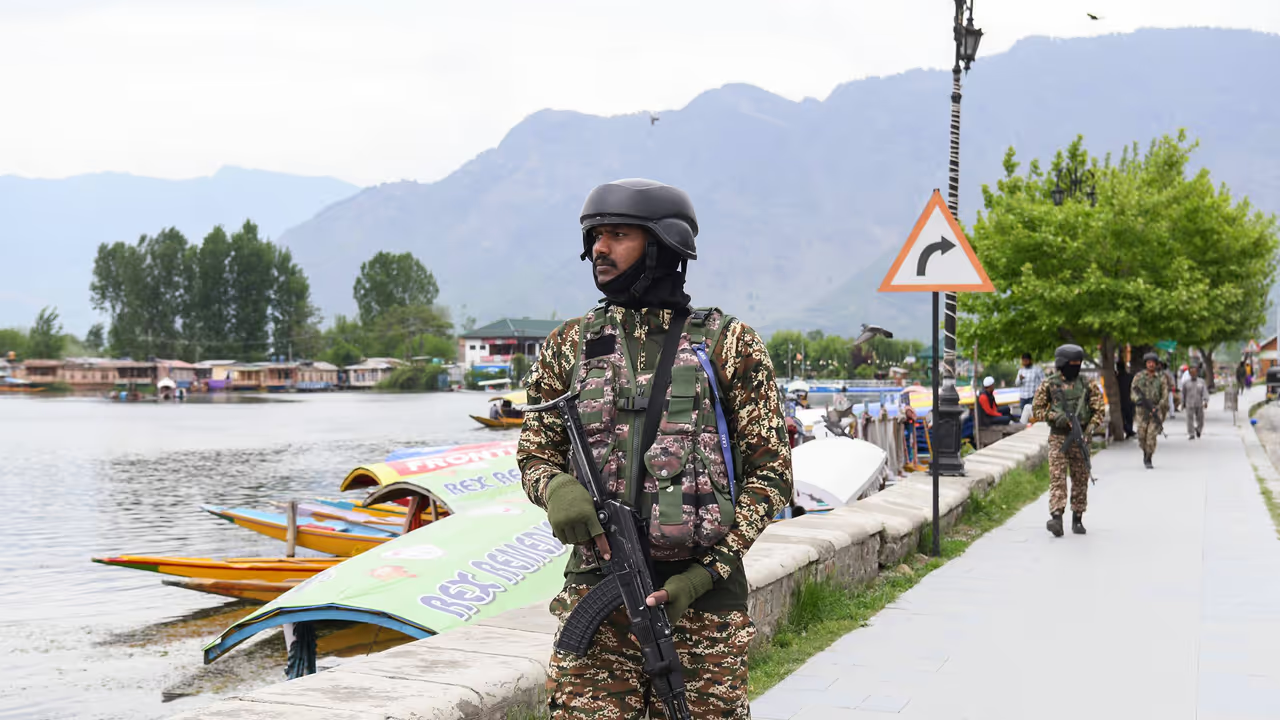Supreme Court has refused to hear petition seeking probe into Pahalgam terror attack, saying don't demoralise the forces
The Supreme Court on Thursday declined to entertain a petition seeking a judicial inquiry into the recent Pahalgam terror attack, asserting that such demands could "demoralise the security forces" operating in sensitive zones.

The Supreme Court on Thursday refused to entertain a petition seeking a judicial probe into the April 22 Pahalgam terror attack that claimed 26 lives, warning the petitioner against demoralising the armed forces during a national crisis.
A Bench of Justices Surya Kant and NK Singh was hearing a public interest litigation (PIL) filed by advocate Fatesh Sahu, who had urged the Court to appoint a retired Supreme Court judge to investigate alleged security lapses leading to the deadly assault on tourists in Jammu and Kashmir.
“This is a crucial hour when every Indian is united in the fight against terrorism. Don't demoralise the forces. Look at the sensitivity of the issue,” the Bench remarked sternly, cautioning the petitioner about the implications of such a demand.
The judges made it clear that judicial officers are not investigators. “Since when did retired High Court or Supreme Court judges become experts in investigations? We are here to decide legal disputes—not to conduct probes,” Justice Kant said.
Facing sharp criticism, the petitioner agreed to withdraw the prayer for a judicial probe.
The counsel then sought directions for safeguarding Kashmiri students studying outside Jammu and Kashmir, citing reported incidents of retaliation following the Pahalgam attack. However, the Court remained unconvinced.
“First you ask for a judicial probe, then you want compensation, guidelines, and now you want protection for students. You can’t keep shifting focus like this. Don’t force us to read all this at night,” the Bench observed.
While dismissing the plea, the court granted the petitioner liberty to approach the relevant High Court for issues concerning the safety of students from Jammu and Kashmir.
Pahalgam terror attack
On April 22, a devastating terrorist attack in Baisaran Valley near Pahalgam, Jammu and Kashmir, resulted in the deaths of 26 civilians, marking one of the deadliest assaults on tourists in the region's recent history.
The attackers, five militants armed with M4 carbines and AK-47s, targeted a group of tourists in the scenic meadow surrounded by dense pine forests. Survivors recounted that the assailants, dressed in camouflage, segregated the victims by asking their religion before opening fire. Among the deceased were 25 tourists, predominantly Hindus, and one local Muslim pony operator who attempted to confront the attackers.
The Resistance Front (TRF), believed to be an offshoot of the Pakistan-based Lashkar-e-Taiba, initially claimed responsibility, citing opposition to the Indian government's residency policies in Kashmir. However, TRF later retracted its claim, adding to the complexity of the investigation.
In response, Indian authorities launched a comprehensive investigation, with the National Investigation Agency (NIA) identifying links between the attackers and Pakistan-based operatives. The incident has escalated tensions between India and Pakistan, with both nations exchanging diplomatic barbs and taking retaliatory measures.
Pahalgam attack has drawn widespread condemnation, with calls for justice and heightened security measures to protect civilians and tourists in the region.
Amid rising tensions following the Pahalgam terror attack, Pakistan has continued unprovoked ceasefire violations along the Line of Control for the seventh consecutive night.
As border villages face nightly shelling, fresh reports have surfaced of Pakistan conducting large-scale military drills near critical frontier zones. Security sources reportedly confirmed that tanks, heavy artillery, and infantry units equipped with modern weaponry participated in coordinated exercises across areas including Sialkot, Narowal, Zafarwal, and Shakargarh.
Citing official and media sources, Indian defence officials view these maneuvers as a show of force intended to escalate pressure along the sensitive border, even as civilian casualties rise and calls for heightened security in Jammu and Kashmir intensify.


